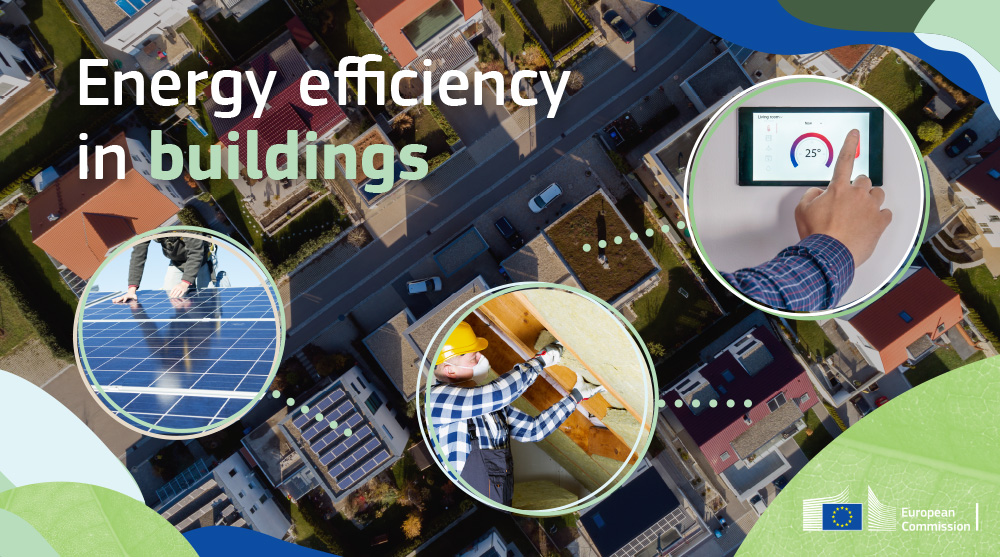Renovation Wave Strategy
The building sector in Europe and is responsible for about 40% of the EU’s total energy consumption and more than one third of the EU’s emissions. But only 1% of buildings undergo energy efficient renovation every year, so effective action is crucial to making Europe climate-neutral by 2050. Currently, roughly 75% of the building stock is energy inefficient, yet almost 85-95% of today’s buildings will still be in use in 2050. Renovation of both public and private buildings is an essential measure in this context, and has been singled out in the European Green Deal as a key initiative to drive energy efficiency in the sector and deliver on objectives. The renovation wave initiative will build on the requirement for each EU country to publish a long-term building renovation strategy (LTRS), other aspects of the amending Directive on the Energy Performance of Buildings ((EU) 2018/844), and building-related aspects of each EU country’s national energy and climate plans (NECPs).
EPF intends to invest all possible efforts to promote wood-based panels as climate-friendly and sustainable solutions to turn the built environment into an energy efficient carbon sink. In its joint position paper on the announcement of the Renovation Wave Strategy EPF welcomed amongst others the following points:
- The proposal to establish a New European Bauhaus in which nature-based materials such as wood can play a crucial role underlining their double benefit of carbon storage in EU building stock and energy-intensive material substitution;
- The ambition to create up to 160.000 additional green jobs by 2030 and upskilling workers to at least double the renovation rate;
- The promotion of the environmental sustainability of building solutions and materials, including wood and bio-based materials, nature-based solutions and recycled materials on the basis of a comprehensive life-cycle assessment approach;
- The revision of the Construction Product Regulation in line with the sustainability performance of construction products;
- The establishment of measures to increase reuse and recycling platforms and support a well-functioning internal market for secondary raw materials.
In particular, EPF is excited to join the challenge to renovate 35 million homes by 2030. The climate positive benefits of doing this with wood and wood-based panels are immense.
- EP S&D Position Paper on the Renovation Wave Strategy
- EPF strategic recommendations on the implementation of the Renovation Wave Strategy
- EPF, EFBWW, CEI-Bois, FEP & EOS – Joint Position Paper on the Renovation Wave Strategy
- High-Level Meeting on the Renovation Wave – European Week of Regions & Cities 2110202
- Press Release on the Renovation Wave Strategy: the opportunity to turn the built environment into a carbon sink
- EPF EOS FEP EFBWW ZWE – Joint Letter to Mr Ciaran Cuffe MEP on energy efficiency of the built environment
- EPF response to the roadmap towards the ‘renovation wave’ initiative
- COM Renovation Wave Strategy
- EP – Report on maximising the energy efficiency potential of the EU building stock
- EPF Contribution Renovation Wave Startegy – Public Consultation


